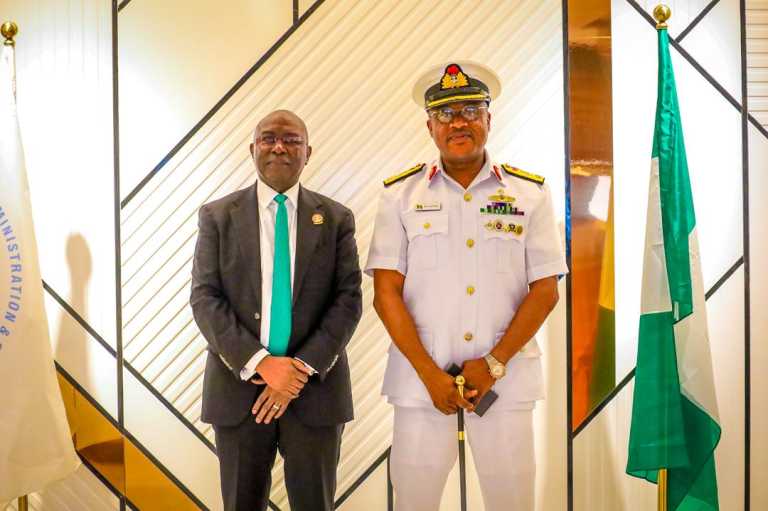Lagos Water: CAPPA Raises Concerns Over Lack of Transparency
By prince Benson Davies
Corporate Accountability and Public Participation Africa (CAPPA) has expressed deep concern over a Memorandum of Understanding (MoU) signed between the Lagos State Government and the Belstar/ENKA consortium to rehabilitate and expand the state’s water infrastructure, saying the entire process and the outcome lacks transparency.
In a statement, CAPPA noted that while the government touts the MoU as a strategic move to improve water supply, the scant information made public about it raises more questions than answers.
The nongovernmental organisation (NGO) called for transparency about the deal, saying the Lagos State government owed its taxpayers a duty of disclosure and accountability.
“As an organisation committed to promoting public participation and ensuring the rights of citizens to access safe and affordable water, CAPPA finds the current approach deeply troubling and symptomatic of a broader pattern of opacity in public water governance in Lagos State,” said Akinbode Oluwafemi, Executive Director, CAPPA.
“That this agreement was conceived of and finalised behind closed doors, then simply announced to the public, is an affront to the very notion of a democratically-accountable government.
“More than just a utility, water provision is a fundamental public service and essential good. Therefore, any contracts or agreements that affect its delivery, affordability, and quality must be subjected to the highest standards of transparency and public accountability.
“This MoU, which will determine the future of water access for millions of Lagosians, appears to have been signed without public consultation or legislative scrutiny.”
According to CAPPA, the government’s announcement raised several red flags that must be urgently addressed. They included:
“Who are these contractors? What are the corporate profiles and track records of Belstar Capital and ENKA? What was the public procurement process through which they were vetted and selected? What is their registration status in Nigeria?
“What exactly are the projects covered? The terms ‘rehabilitation and expansion’ are vague. Which waterworks, treatment facilities, and distribution networks are targeted? What areas will benefit, and how will these projects impact public access and affordability, especially in the poorest parts of the state?
“What is the contract’s total cost? The financial worth of this deal remains undisclosed, and the terms of arrangement, beyond a reference to the engineering, procurement, construction, and finance model being insured by the US International Development Finance Corporation (DFC), have not been made public.
“Furthermore, the involvement of a US government agency should raise alarm given the recent, abrupt pullback of USAID activity in the Lagos water sector and clear pro-corporate priorities of the US on a global level today.
“Are the completed waterworks going to remain under public ownership and control, or will they be privatised? The mode of project execution is framed under EPC+F (Engineering, Procurement, Construction, and Finance), but key details on ownership, repayment, and operational control remain hidden. Are these entities building and handing over, or will they or some other multinational own and operate the completed projects for years to come?
“What is the role of Lagos Water Corporation (LWC)? The government’s statement implies that LWC will ‘collaborate’ with the consortium. Does this mean LWC will cede control or remain a technical advisor while corporations take the driver’s seat?
“What is the repayment structure and impact on water tariffs? If this project is being financed through loans or external credit, how will the state repay? Will this debt be recovered through increased tariffs and user fees, thus burdening already struggling households?”
CAPPA expressed alarm at the government’s repeated flirtation with privatisation, despite overwhelming public resistance, and a growing body of global evidence showing that public-private partnerships in the water sector often lead to higher tariffs, inequitable access, and poor service delivery. The conspicuous absence of details on who will control these waterworks once the contract is completed, coupled with the years in pursuit of privatisation schemes, suggests that the spectre of private control of water remains on the horizon.
“We reiterate that the path to water resilience for Lagos State cannot and must not be dictated by corporate interests,” the statement added.
Arguing that Lagosians had the right to know the terms of agreements that affected their lives, CAPPA emphasised that water governance ought to be open, participatory, and accountable.
It added: “We therefore call on the Lagos State Government to: Immediately make the full text of the MoU public, including annexes, financial arrangements, and project timelines.
“Organise a public stakeholder forum with civil society, labour, communities, and media to explain the scope and implications of this agreement.
“Halt further moves toward water privatisation and instead recommit to public, democratically controlled, and adequately funded water systems. This includes an explicit and binding commitment that all rehabilitated and newly constructed infrastructure under the purview of this MoU remain under public ownership and control even after completion.”
Finally, CAPPA emphasised that the solution to Lagos’ water challenges “is not to look to corporations with profit motives but to reinvest in public water infrastructure, strengthen public institutions, and embrace participatory governance.
 The New Experience Newspapers Online News Indepth, Analysis and More
The New Experience Newspapers Online News Indepth, Analysis and More
